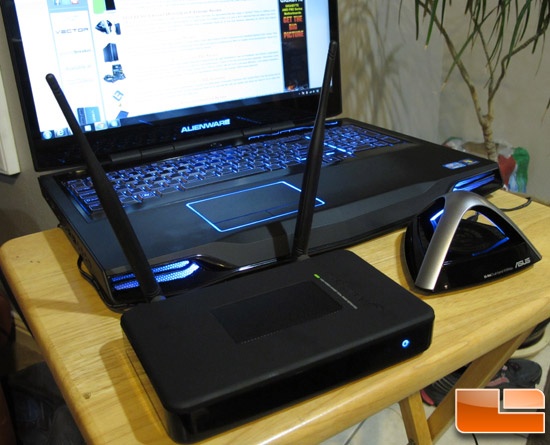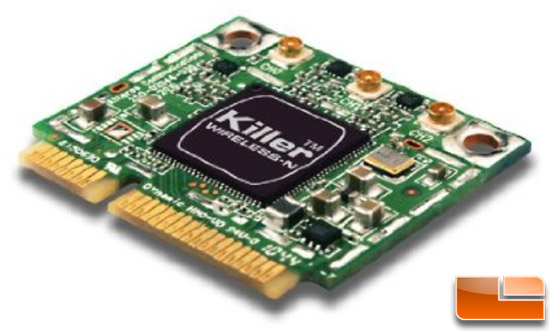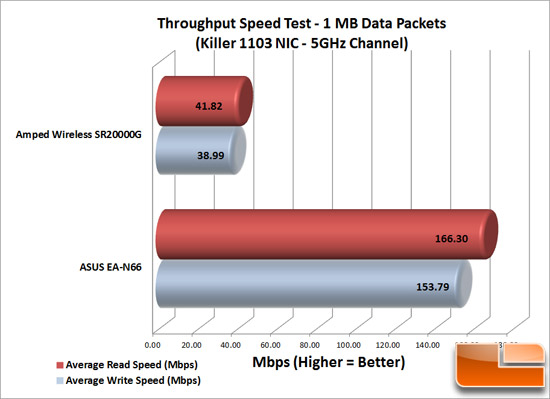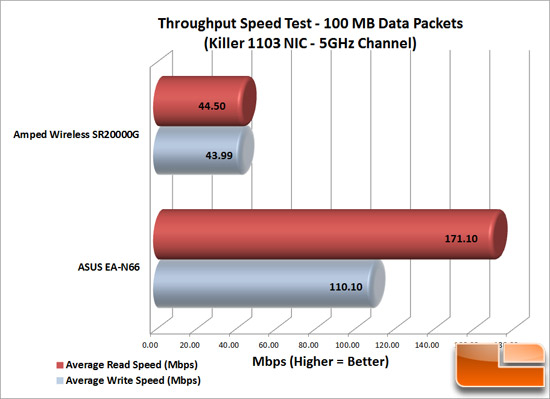ASUS EA-N66 & Amped SR20000G Wi-Fi Extender Review
Wi-Fi Extender Speed Testing – 3 Antennas

We really wanted to push the limits of our extenders so we did something a bit different. Instead of just using a 2-antenna NIC card embedded in our Dell Laptop, we wanted to see how a 3×3 or 3-antenna NIC worked with our extenders.
We grabbed an Alienware M17XR4 which features an Intel i7-3610QM CPU with 6GB RAM running Windows 7 64-Bit, and an NVIDIA GeForce GTX 660M. More importantly, we outfitted this laptop with a Qualcomm Antheros Killer Wireless-N 1103 Network Adapter. The Killer 1103 is a three-antenna network adapter that connects at up to 450Mbps over 802.11n and features reduced power consumption and Wi-Fi Direct. Much has been written about the Killer NIC technology in recent years but there is no doubt that a 3-antenna solution should give users significantly greater network stability and top-end speeds. Let’s see if our speed measurements show this.

Like our last test, we took our laptop – this time, our Alienware with the Killer Wireless 1103 – and once again moved it 25-feet away from the extender. We connected to our local network in “Unsecure Mode” (for fastest data throughput), with WMM turned ON. After connecting, we ran the PC application LAN Speed Test (LST) and measured our “extended” network speeds.

Test Results: Wow. If you ever wondered why you should look at a 3-antenna wireless network card, the proof is shown in the chart above. The ASUS EA-N66 shows that a 3-antenna solution is much faster than a 2-antenna network adapter. There is a 75% improvement in speed with the ASUS when using the Killer Wireless 1103 3-antenna NIC. The Amped Wireless repeater’s speed is consistent doing the best it can for a transceiver that has ‘only’ 2-antennas.

Test Results: Looking at the larger data packets, we see that the ASUS EA-N66 again excels with Read Speeds toping 170 Mbps! The Amped Wireless SR20000G is holding steady with a consistent rate of around 44 Mbps for both the Average Read and Write speeds.

Comments are closed.